Electricity and magnetism -> hormones
Hormones
Hormones are special chemical messengers in the body that are created in the endocrine glands. They are released into the bloodstream and have specific effects on different parts of the body. Hormones play a crucial role in regulating various bodily functions, including growth and development, metabolism, sexual function, and mood.
Types of Hormones
There are several types of hormones, including:
- Steroid Hormones: These are derived from cholesterol and include hormones such as estrogen, progesterone, and testosterone.
- Peptide Hormones: These are made up of amino acids and include hormones such as insulin and growth hormone.
- Amino Acid-Derived Hormones: These are derived from amino acids and include hormones such as epinephrine and thyroxine.
Functions of Hormones
Hormones have diverse functions in the body, including:
- Regulating Metabolism: Hormones such as insulin and glucagon help regulate blood sugar levels and metabolism.
- Controlling Growth and Development: Growth hormone and sex hormones play a key role in growth, development, and sexual maturation.
- Regulating Reproduction: Hormones such as estrogen and progesterone are involved in the menstrual cycle and pregnancy.
- Maintaining Homeostasis: Hormones help maintain a stable internal environment by regulating body temperature, fluid balance, and other physiological processes.
- Mediating Stress Responses: Hormones such as cortisol and adrenaline help the body respond to stress.
Study Guide
When studying hormones, it's important to understand the following key points:
- Define what hormones are and where they are produced in the body.
- Identify the different types of hormones and their chemical composition.
- Explain the functions of hormones in regulating metabolism, growth, reproduction, homeostasis, and stress responses.
- Understand the role of specific hormones such as insulin, estrogen, testosterone, and adrenaline in the body.
- Explore the impact of hormonal imbalances on health and well-being.
By mastering these key points, you will have a solid understanding of the role of hormones in the body and their significance for overall health and function.
Good luck with your studies!
.◂Science Worksheets and Study Guides Fourth Grade. Electricity and magnetism
Study Guide Electricity and magnetism
Electricity and magnetism  Activity Lesson
Activity Lesson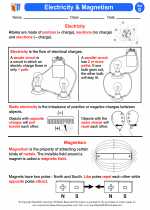 Electricity & Magnetism
Electricity & Magnetism  Worksheet/Answer key
Worksheet/Answer key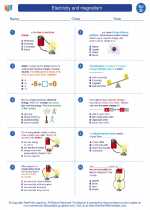 Electricity and magnetism
Electricity and magnetism  Worksheet/Answer key
Worksheet/Answer key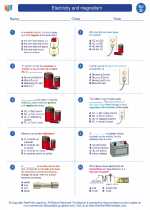 Electricity and magnetism
Electricity and magnetism  Worksheet/Answer key
Worksheet/Answer key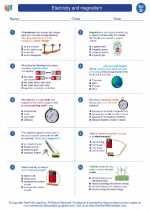 Electricity and magnetism
Electricity and magnetism  Worksheet/Answer key
Worksheet/Answer key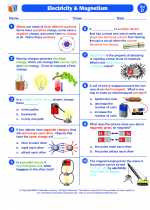 Electricity and Magnetism
Electricity and Magnetism  Vocabulary/Answer key
Vocabulary/Answer key Electricity and magnetism
Electricity and magnetism  Vocabulary/Answer key
Vocabulary/Answer key Electricity and magnetism
Electricity and magnetism 

 Activity Lesson
Activity Lesson
 Worksheet/Answer key
Worksheet/Answer key
 Worksheet/Answer key
Worksheet/Answer key
 Worksheet/Answer key
Worksheet/Answer key
 Worksheet/Answer key
Worksheet/Answer key
 Vocabulary/Answer key
Vocabulary/Answer key
 Vocabulary/Answer key
Vocabulary/Answer key

The resources above cover the following skills:
PHYSICAL SCIENCE
Energy
Plan and carry out investigations that explain transference of energy from place to place by sound, light, heat, and electric currents.
Demonstrate that electric circuits require a complete loop through which an electric current can pass.
Design, construct, and test a device that changes energy from one form to another (e.g., electric circuits converting electrical energy into motion, light, or sound energy; a passive solar heater converting light energy into heat energy).